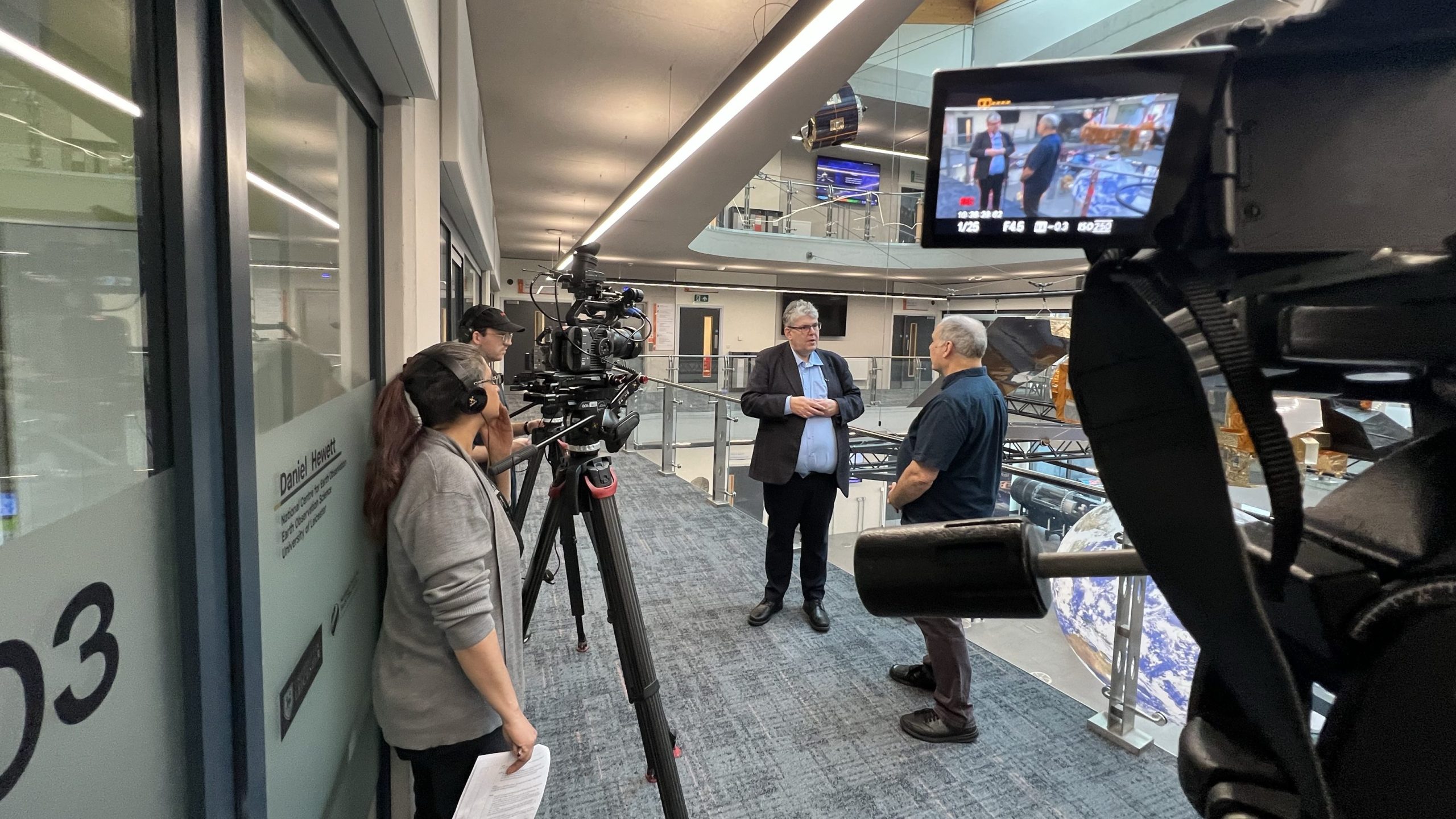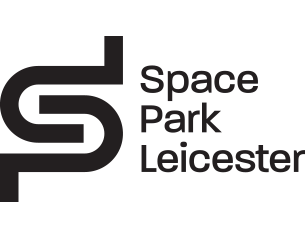Leicester Earth Observation expert unravels SpaceX spiral phenomenon for BBC’s The Sky at Night

A University of Leicester Earth Observation scientist has provided an explanation for a mysterious spiral phenomenon spotted in the night sky for the BBC’s The Sky at Night programme.
With theories on social media ranging from aliens to a space-time rift, Professor Paul Monks has provided an explanation from much closer to home. The glowing spirals are in fact the result of SpaceX’s Falcon 9 rocket releasing fuel during its separation procedure.
Professor Monks explained how this effect occurs to The Sky at Night presenter Pete Lawrence during their filming at Space Park Leicester. When expelled, the fuel spirals in a similar way to a hosepipe and then freezes in the cold upper atmosphere to form a cloud.
Professor Monks, from the University of Leicester School of Chemistry, said:
“Something called the astronomical twilights, the lower part of the atmosphere, is in shade, but for the very high part of the atmosphere, the Sun over the horizon is illuminating that. So essentially you get an illuminated cloud, often equivalent to what we called noctilucent clouds.”

The interview has been uploaded to The Sky at Night website as bonus content to accompany the final episode of this year’s series. Filmed in front of a live studio audience the episode (https://www.bbc.co.uk/iplayer/episode/m002m4fp/the-sky-at-night-space-mysteries-the-sky-at-night-meets-curious-cases) features Hannah Fry and Dara Ó Briain alongside regular presenters Chris Lintott, George Dransfield and University of Leicester Chancellor Maggie Aderin-Pocock.
Professor Monks brings an outstanding record of scientific leadership and government service to the University of Leicester and Space Park Leicester, the university’s £100 million space research and innovation centre.
Most recently, he has served as the Chief Scientific Adviser (CSA) for the Department for Energy Security and Net Zero (DESNZ) from February 2023 to October 2025, where he provided independent science and engineering advice to ministers and policymakers and co-chaired the DESNZ Science and Technology Advisory Council. Prior to this, he was CSA for the Department for Business, Energy and Industrial Strategy (BEIS) and previously served as Pro-Vice Chancellor and Head of the College of Science and Engineering at the University of Leicester, where he continues as Professor of Atmospheric Chemistry and Earth Observation Science.
In recognition of his exceptional contributions to science in government, Professor Monks was awarded the Companion of the Order of the Bath (CB) in the King’s New Year Honours 2025.
Space Park Leicester is a world-leading centre for Earth observation research. The National Centre for Earth Observation (NCEO), headquartered at Space Park Leicester, is at the forefront of using satellite data to understand and protect our planet.
Backed by the Natural Environment Research Council (NERC), NCEO brings together over 130 top scientists from across the UK’s most respected universities and research organisations. Together, they form a national capability in Earth observation science spanning climate monitoring, environmental change, and sustainable resource management.
The NCEO collaborates closely with industry partners, start-ups, and other research institutions to transform satellite data into real-world solutions that support a greener, more resilient future.
Professor Monks, added: “Engaging the public with the science behind what they see in the night sky is incredibly important. By communicating how and why these fascinating phenomena occur, we not only spark curiosity but also build a deeper understanding of the science that underpins our exploration of space. We’re proud to play a part in connecting people with the wonder of our universe through research, innovation and outreach.”
To explore Space Park Leicester partnerships, missions, residents, facilities, training programmes and innovation products, visit www.space-park.co.uk or to learn more about the University of Leicester visit https://le.ac.uk/.
Main image: Professor Paul Monks being interviewed at Space Park Leicester by the BBC The Sky at Night team


